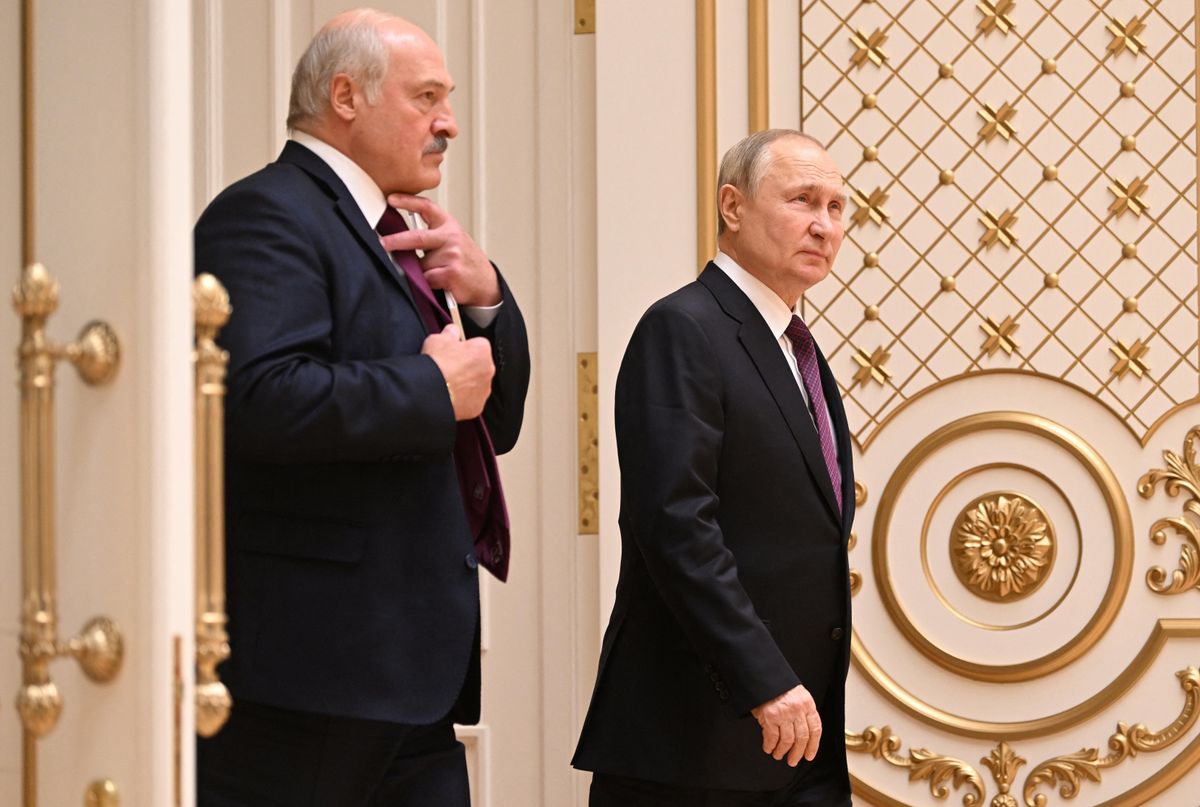Russia’s Vladimir Putin is scrambling this week to project strength and confidence in support of a war effort in Ukraine that’s gone terribly wrong. Russian forces have continued their artillery strikes against critical infrastructure targets across Ukraine, temporarily knocking out heat and electricity for civilians in many Ukrainian cities. On Monday, Putin visited Minsk to meet with an ally, Belarus’ President Alexander Lukashenko.
The trip appeared designed to raise Ukrainian and Western fears that Russian soldiers stationed in Belarus – perhaps accompanied by Belarussian troops – will again cross the border to take another shot at capturing Kyiv, Ukraine’s capital, most likely in the spring as ground conditions improve. Russian and Belarussian fighters have again engaged in joint military drills, helping Putin to argue that he does have allies in his war in Ukraine, even if Lukashenko has so far resisted Russian pressure to formally join the war.
Putin’s latest show of strength is intended for three separate audiences. He hopes to weaken Ukrainian resistance by signaling that Russia remains fully committed to punishing Ukraine until its leaders surrender. That message is also meant to boost the arguments of those politicians in Europe and the United States who insist that long-term support for Ukraine is too expensive for their governments in a time of hardship at home. Finally, it’s designed to persuade Russians that Putin has the will to ensure their military will win in the end.
But Putin’s latest muscle flex is unlikely to make much difference. So far, Ukrainian authorities have demonstrated an ability to blunt the force of Russian attacks on infrastructure by intercepting some Russian missiles and drones and also by restoring electricity and heat relatively quickly following each major attack. There’s no sign these artillery attacks have moved Ukraine’s government toward concessions of any kind. There is no reason yet to expect NATO, the EU, or the Biden administration will hedge their bets on Ukraine’s continued resistance.
Nor is there any indication that Putin has managed to change Lukashenko’s mind about committing Belarussian troops to the fight. Even if Belarus joined the battle, the effect would be simply to pull more Ukrainian troops from other regions to repel another attack from the north. The Institute for the Study of War, a Washington-based military think tank, argued in a recent report that a new Russian attack on Kyiv from Belarus is “extraordinarily unlikely to succeed.” Russian forces have been badly degraded since their first run on the capital, and Ukrainians are now much better prepared to play defense.
In short, Putin’s war on Ukraine grinds on with no game-changing breakthrough in sight.
For more on Putin’s attempt to push Lukashenko into a more active role against Ukraine, watch former Swedish PM Carl Bildt’s Europe in 60 Seconds.



















